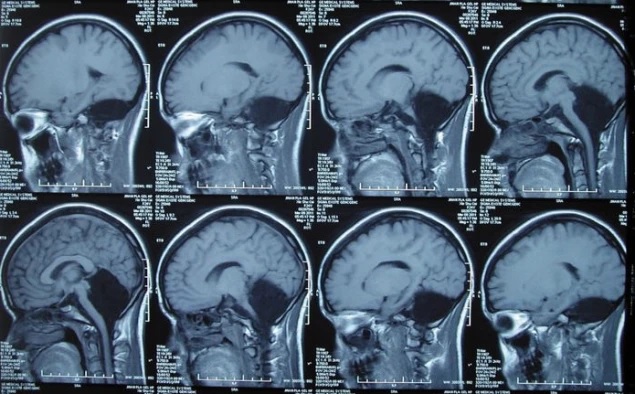TORONTO – When she checked into the emergency room for dizziness and nausea, doctors in China’s Shandong Province didn’t expect their patient’s bizarre diagnosis: the 24-year-old woman was born without a cerebellum, a major part of the brain.

For two decades, the patient had trouble with balance and walking steadily. She learned to walk at age 7, and as a child, her speech was slurred. During the month before showing up at the hospital, she was dealing with nausea and vomiting, scientists studying her rare case documented in the journal, Brain.
A CT scan revealed to baffled doctors what was going on: her entire cerebellum was missing. In its place was cerebrospinal fluid – a cushion for the brain.
“CT and MRI scans revealed no remnants of any cerebellar tissues, verifying complete absence of the cerebellum,” the doctors wrote.
READ MORE: Fit in your 20s? Your brain will thank you later, study suggests
The cerebellum, a tiny portion in the back of the skull, is a pivotal part of the brain for controlling motor movement, coordination and balance and even speech. It’s not surprising that the woman had a hard time grappling with learning to walk or speaking in her development, the researchers said.
But what’s impressive is that she only dealt with minor motor problems. The researchers suggest the remaining parts of her brain picked up the missing pieces and helped her reach these developmental milestones.
- B.C. to ban drug use in all public places in major overhaul of decriminalization
- 3 women diagnosed with HIV after ‘vampire facials’ at unlicensed U.S. spa
- Solar eclipse eye damage: More than 160 cases reported in Ontario, Quebec
- ‘Super lice’ are becoming more resistant to chemical shampoos. What to use instead
“It shows that the young brain tends to be much more flexible or adaptable to abnormalities,” Dr. Raj Narayan, a neurosurgery professor at North Shore University Hospital, told Fox News.
“When a person is either born with an abnormality or at a very young age loses a particular part of the brain, the rest of the brain tries to reconnect and to compensate for that loss or absence,” he explained.
READ MORE: Not too late for seniors to take up exercise for better health, longer life
But it’s a striking anomaly. Only a handful of other cases – media reports cite eight – have been documented, and in most instances, the kids didn’t survive the condition. They also suffered from mental impairment, epilepsy and other concerns.
It’s unclear why the woman lived for decades without learning of her extremely rare condition.
The report says she’s married with a daughter, and neither her parents nor five siblings have any neurological issues. But her mother told scientists the patient couldn’t stand on her own until age 4, and walk until age 7.
“She never ran or jumped. Her speech was not intelligible until 6 years of age and she did not enter school,” the report says.
Read the full paper here.
carmen.chai@globalnews.ca
Follow @Carmen_Chai




Comments